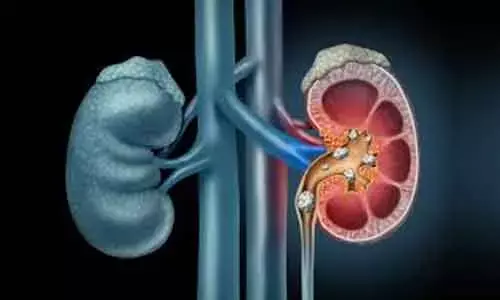- Home
- Medical news & Guidelines
- Anesthesiology
- Cardiology and CTVS
- Critical Care
- Dentistry
- Dermatology
- Diabetes and Endocrinology
- ENT
- Gastroenterology
- Medicine
- Nephrology
- Neurology
- Obstretics-Gynaecology
- Oncology
- Ophthalmology
- Orthopaedics
- Pediatrics-Neonatology
- Psychiatry
- Pulmonology
- Radiology
- Surgery
- Urology
- Laboratory Medicine
- Diet
- Nursing
- Paramedical
- Physiotherapy
- Health news
- Fact Check
- Bone Health Fact Check
- Brain Health Fact Check
- Cancer Related Fact Check
- Child Care Fact Check
- Dental and oral health fact check
- Diabetes and metabolic health fact check
- Diet and Nutrition Fact Check
- Eye and ENT Care Fact Check
- Fitness fact check
- Gut health fact check
- Heart health fact check
- Kidney health fact check
- Medical education fact check
- Men's health fact check
- Respiratory fact check
- Skin and hair care fact check
- Vaccine and Immunization fact check
- Women's health fact check
- AYUSH
- State News
- Andaman and Nicobar Islands
- Andhra Pradesh
- Arunachal Pradesh
- Assam
- Bihar
- Chandigarh
- Chattisgarh
- Dadra and Nagar Haveli
- Daman and Diu
- Delhi
- Goa
- Gujarat
- Haryana
- Himachal Pradesh
- Jammu & Kashmir
- Jharkhand
- Karnataka
- Kerala
- Ladakh
- Lakshadweep
- Madhya Pradesh
- Maharashtra
- Manipur
- Meghalaya
- Mizoram
- Nagaland
- Odisha
- Puducherry
- Punjab
- Rajasthan
- Sikkim
- Tamil Nadu
- Telangana
- Tripura
- Uttar Pradesh
- Uttrakhand
- West Bengal
- Medical Education
- Industry
Patients with metabolic syndrome at higher risk of kidney stones: JAPI

Lucknow, Uttar Pradesh: Nephrolithiasis is highly prevalent in patients with metabolic syndrome, suggests a recent study in the Journal of the Association of Physicians of India. The study also found a significant correlation between risk factors of nephrolithiasis and various metabolic syndrome components.
The rise in incidence of nephrolithiasis in recent decades coincides with the increasing epidemic of type 2 diabetes, metabolic syndrome, and obesity. This concordance suggests a possible link between metabolic abnormalities and urinary stone disease. Therefore, Ritu Karoli, Professor(Junior Gr.), Dept. of Medicine, Dr. RMLIMS, Lucknow, Uttar Pradesh, and colleagues aimed to investigate the association between presence of risk factors of nephrolithiasis and metabolic syndrome.
The hospital-based, case control study included hundred patients of metabolic syndrome diagnosed according to IDF criteria. Hundred age and matched controls were studied for presence of risk factors of nephrolithiasis.
Key findings of the study include:
- Patients with metabolic syndrome had significantly higher uricosuria,hypercalciuria,oxaluria and hypocitraturia.
- The prevalence of risk factors of nephrolithiasis was also higher in patients with metabolic syndrome.
- The most prevalent was low urinary pH in 40% patients with mean pH of 5.8±1.6.
- Amongst other factors, 33% had hyperuricemia, 29% had hypercalciuria, 15% had oxaluria 13% had hypocitraturia and 10% had hyperuricosuria.
- Significant correlation was observed between risk factors of nephrolithiasis and components of metabolic syndrome.
Our findings provides an evidence of association between risk factors of nephrolithiasis and metabolic syndrome and suggests that nephrolithiasis may be a systemic disorder representing the interaction of multiple metabolic derangements," wrote the authors.
"Determining common modifiable risk factors for the development of kidney stones might uncover new preventive strategies," they concluded.
"Study of Association of Metabolic Syndrome and Risk Factors of Nephrolithiasis," is published in the Journal of the Association of Physicians of India.
DOI: https://www.japi.org/x2747474/study-of-association-of-metabolic-syndrome-and-risk-factors-of-nephrolithiasis
Dr Kamal Kant Kohli-MBBS, DTCD- a chest specialist with more than 30 years of practice and a flair for writing clinical articles, Dr Kamal Kant Kohli joined Medical Dialogues as a Chief Editor of Medical News. Besides writing articles, as an editor, he proofreads and verifies all the medical content published on Medical Dialogues including those coming from journals, studies,medical conferences,guidelines etc. Email: drkohli@medicaldialogues.in. Contact no. 011-43720751


